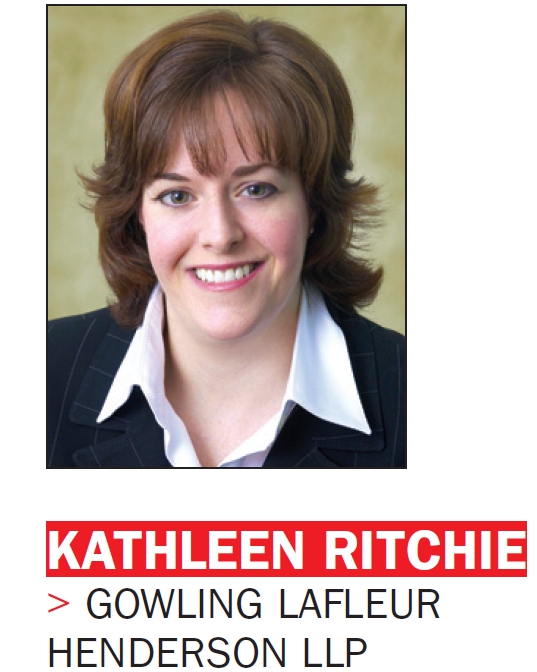Securities Bar skeptical of ‘guidelines' intended to bring proxy advisory firms to heel
By Sheldon Gordon
CORPORATE LAWYERS and their clients are waiting to see if Canada's securities regulators will be persuaded to take a harder line toward proxy advisory firms than was proposed in April. The Canadian Securities Administrators (CSA) published proposed National Policy 25-201 Guidance for Proxy Advisory Firms on April 24, allowing 60 days for comment.
The CSA proposed guidance for proxy advisors, such as Institutional Shareholder Services Inc. (ISS) and Glass Lewis & Co. The guidance encourages proxy advisors to avoid conflicts of interest, improve their accuracy and be more transparent. But all the reforms are discretionary.
Jason Saltzman, with Borden Ladner Gervais LLP, expects comments by public companies not to have much effect, given that they amount to mere suggestions. “You would think [the regulators] would go a little bit tougher, but it's hard to tell.”
Kathleen Ritchie, with Gowling Lafleur Henderson LLP, counted only two comments in the first 30 days, but she says any negative experiences that issuers have with the advisory firms this season could make them “more vocal,” she says.
Boards have voiced annoyance at proxy advisors — particularly when inaccuracies result in a recommendation to vote against board initiatives. The CSA's guidance suggests that the proxy advisors explain methodologies used to prepare vote recommendations. But the CSA doesn't suggest – much less require – the firms to provide a draft of their report to the company for review. “I don't know why that would be such an unreasonable thing to at least suggest,” says Saltzman. At the very least, he says, proxy advisors should be required to provide a balanced report and not just heed dissident shareholders.
ISS does give issuers a draft and 24 hours to correct factual errors. Usually, though, it's not inaccuracy but, rather, the advisor's own high standard that leads to a negative recommendation, says Ritchie. For example, ISS has guidelines against the appointment of directors who already serve on many other boards, a policy criticized as “one-size-fits-all” inflexibility.
Some issuers urge that they be able – if they fail to sway a proxy firm on a recommendation – to at least have a rebuttal included in the firm's report. But the CSA doesn't even suggest that possibility.
Will the proxy advisors follow the CSA's guidelines in order to forestall tougher regulation? “They seem to be prepared to evolve,” says Ritchie. “Glass Lewis, in the US, is doing a pilot project on providing issuers with the underlying data ... to check for inaccuracies.”
Saltzman is pessimistic. “I wouldn't expect to see much in the way of changes” by the proxy firms. “Changes that are easy to make, they may well do; ones that may be difficult, they probably won't.”
By Sheldon Gordon
CORPORATE LAWYERS and their clients are waiting to see if Canada's securities regulators will be persuaded to take a harder line toward proxy advisory firms than was proposed in April. The Canadian Securities Administrators (CSA) published proposed National Policy 25-201 Guidance for Proxy Advisory Firms on April 24, allowing 60 days for comment.
The CSA proposed guidance for proxy advisors, such as Institutional Shareholder Services Inc. (ISS) and Glass Lewis & Co. The guidance encourages proxy advisors to avoid conflicts of interest, improve their accuracy and be more transparent. But all the reforms are discretionary.
Jason Saltzman, with Borden Ladner Gervais LLP, expects comments by public companies not to have much effect, given that they amount to mere suggestions. “You would think [the regulators] would go a little bit tougher, but it's hard to tell.”
Kathleen Ritchie, with Gowling Lafleur Henderson LLP, counted only two comments in the first 30 days, but she says any negative experiences that issuers have with the advisory firms this season could make them “more vocal,” she says.
Boards have voiced annoyance at proxy advisors — particularly when inaccuracies result in a recommendation to vote against board initiatives. The CSA's guidance suggests that the proxy advisors explain methodologies used to prepare vote recommendations. But the CSA doesn't suggest – much less require – the firms to provide a draft of their report to the company for review. “I don't know why that would be such an unreasonable thing to at least suggest,” says Saltzman. At the very least, he says, proxy advisors should be required to provide a balanced report and not just heed dissident shareholders.
ISS does give issuers a draft and 24 hours to correct factual errors. Usually, though, it's not inaccuracy but, rather, the advisor's own high standard that leads to a negative recommendation, says Ritchie. For example, ISS has guidelines against the appointment of directors who already serve on many other boards, a policy criticized as “one-size-fits-all” inflexibility.
Some issuers urge that they be able – if they fail to sway a proxy firm on a recommendation – to at least have a rebuttal included in the firm's report. But the CSA doesn't even suggest that possibility.
Will the proxy advisors follow the CSA's guidelines in order to forestall tougher regulation? “They seem to be prepared to evolve,” says Ritchie. “Glass Lewis, in the US, is doing a pilot project on providing issuers with the underlying data ... to check for inaccuracies.”
Saltzman is pessimistic. “I wouldn't expect to see much in the way of changes” by the proxy firms. “Changes that are easy to make, they may well do; ones that may be difficult, they probably won't.”
Lawyer(s)
Jason M. Saltzman
Kathleen M. Ritchie





